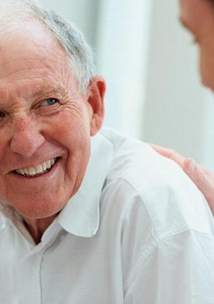GP Access Survey 2024
The way we access local primary care services, such as GPs is evolving all the time. In recent years there has been a large shift towards remote services, with patients now booking online, and typically receiving their initial consultation (triage) through phone or video call.
Traditional methods, such as booking through the phone or in-person are on the decline, and this will affect certain groups with a support need – such as older people or those with a sensory disability.
Being able to see a GP of choice, or a GP at all, is also a recent challenge for some patients. Those with long-term, quite often complex needs value the continuity of seeing the same person, and often prefer a face-to-face relationship.
With all this change we launched a survey on access, completed by around 70 people from a range of ages and backgrounds. What did they tell us?

What did local people tell us?
Firstly, booking an appointment is a challenge – just half of respondents (52%) found the process to be satisfactory.
Telephone Booking
40% of respondents book through the phone and when calling, just 58% are usually able to make contact within 10 minutes. While some patients have benefitted from new callback systems, lines are typically congested at peak morning (8am) and afternoon (2pm) times.
Online Booking
Around half of respondents (52%) usually book their appointments online. As with phone systems, we hear that you need to log in at peak times, in order to successfully book.
One patient says “The online booking system is a nightmare. You have to log in at 8am (when I am always busy with getting kids ready) and it is closed again about ten minutes later.”
On functionality, a marginal majority of respondents (62%) are able to find the form easily, while a smaller number (58%) find it easy to complete. Once submitted, response times are reportedly good.
In-Person Booking
A sizeable minority of patients (28%) are not able to book their appointment at the practice itself. One person, having booked in-person has felt like an ‘inconvenience’ when doing so.
Consultations
On booking, half of respondents (48%) have not been offered a choice of consultation method (in-person, telephone, video).
In fact, 92% of respondents have experienced a remote appointment. While this is convenient for many, a sizeable minority (38%) feel that remote appointments are not sufficient, with concerns expressed about diagnosis in particular.
Just 41% of respondents are able to see their preferred GP or nurse. Concerns are expressed about continuity.
We receive mixed feedback on extended practice staff – such as pharmacists. While some experiences are good, there is some resentment, at not being offered a GP, as an option.
Read more in the full report.
